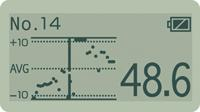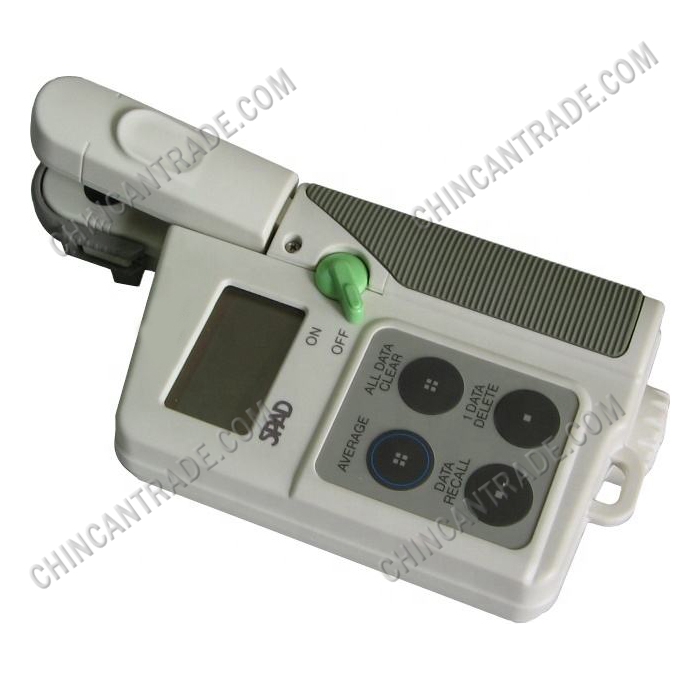SPAD-502Plus
Chlorophyll Meter
Introduction:
1.Measures leaf chlorophyll, an important indicator of plant health.
The SPAD-502Plus performs quick measurements of the chlorophyll content of leaves without damaging the leaf. Its lightweight, splashproof design make it ideal for
measurements in the field.
2.Non-destructive measurement of plant chlorophyll
The SPAD-502Plus enables quick, easy measurement of the chlorophyll content of plant leaves without damaging the leaf. Chlorophyll content is one indicator of plant health, and can be used to optimize the timing and quantity of applying additional fertilizer to provide larger crop yields of higher quality with lower environmental load.
3.FeaturesProduct Overview
Quick, easy measurement of chlorophyll levels in plant leaves without damaging the leaf.
Measurements are taken by just closing the measuring head on the leaf. Since the leaf
is not cut off or damaged in any other way, the same leaf can be measured as the plant
grows.
Trend graph display

Up to 30 measurements can be stored in memory and displayed on a trend graph, so that changes in measurements over time can be seen and abnormal values can be noticed at a glance.
Water-resistant
The SPAD-502Plus is water-resistant (IPX-4) so it can be used outdoors even in the
rain.
* It is not immersible, and should not be washed with water.
Compact and lightweight for portability
The SPAD-502Plus is small enough to fit in a pocket and weighs only 200g, so it can be taken anywhere.
Low power consumption
The SPAD-502Plus uses LED light sources, resulting in extremely low power
consumption, with approximately 20,000 measurements from one set of fresh
alkaline-manganese batteries.
Principal Applications
Monitoring of growth and health of plants
The SPAD-502Plus can be used to monitor the growth and health status of a wide variety of agricultural products, including wheat, rice, corn, cotton, etc.
Nitrogen fertilization optimization
The SPAD-502Plus can be used for determining when and how much nitrogen fertilizer should be provided to plants. Optimizing fertilization in this way leads to not
only greater yields of higher quality, but also results in less over-fertilization, reducing environmental contamination due to the leaching of excess fertilizer into the
soil and underground water.
|
Measurement method |
Optical density difference at two wavelengths |
|
Measurement area |
2 mm×3 mm |
|
Subject thickness |
1.2 mm maximum |
|
Subject insertion depth |
12 mm (with stopper having position
adjustable from 0 to 6 mm)
|
|
Light source |
2 LED elements |
|
Receptor |
1 SPD (silicon photodiode) |
|
Display |
LCD panel showing 4-digit measurement value
(values shown to first decimal place)
and 2-digit number of measurements;Trend graph of
values in memory can also be shown.
|
|
Display range |
-9.9 to 199.9 SPAD units |
|
Memory function |
Memory capacity for up to 30 values; Calculation/display
of average of data in memory also possible
|
|
Power source |
2 AA-size alkaline batteries |
|
Battery life |
More than 20,000 measurements (when using
new alkaline batteries under Konica Minolta
test conditions)
|
|
Minimum interval between measurements |
Approx. 2 seconds |
|
Accuracy |
Within ±1.0 SPAD units (for SPAD value between 0.0
and 50.0 under normal temperature/humidity)
“*” added to display when measurement
exceeds 50.0 SPAD units
|
|
Repeatability |
Within ±0.3 SPAD units (SPAD value between 0.0 and 50.0
with no change in sample position)
|
|
Dimensions |
78 (W) ×164 (H) ×49 (D) mm |
|
Weight |
200 g (excluding batteries) |







